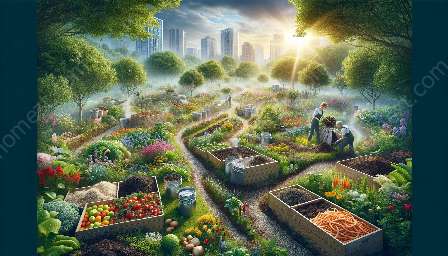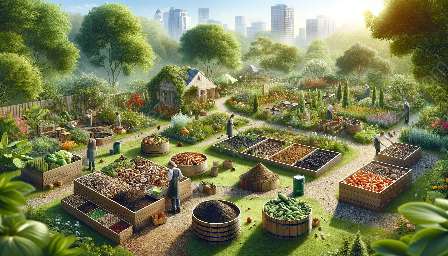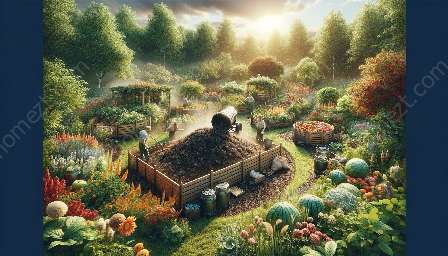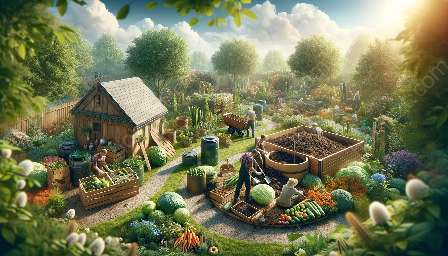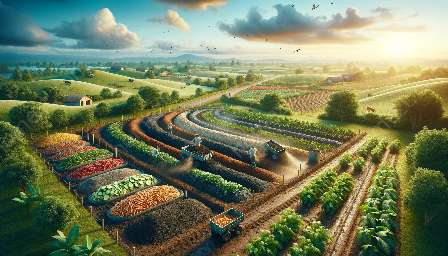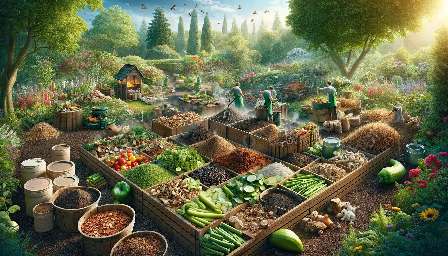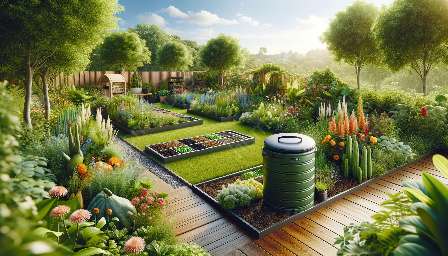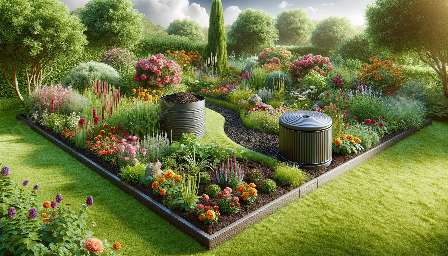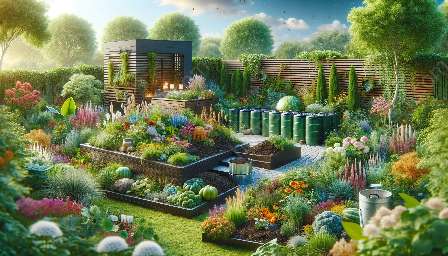Composting and soil fertility are essential elements in maintaining a healthy and thriving garden and landscape. Understanding the relationship between composting and soil fertility can significantly impact the success of your gardening and landscaping efforts. This comprehensive guide explores the significance of composting, its connection to soil fertility, and its role in enhancing gardening and landscaping.
The Significance of Composting
Composting is the process of decomposing organic matter to create nutrient-rich soil amendments. It involves providing the ideal conditions for microorganisms to break down organic materials such as kitchen scraps, yard waste, and other biodegradable materials. Compost acts as a natural fertilizer, enriching the soil with essential nutrients while enhancing its structure, moisture retention, and microbiological activity.
Benefits of Composting
- Enhanced Soil Fertility: Compost enriches the soil with vital nutrients, improving its ability to support healthy plant growth.
- Environmental Sustainability: Composting reduces waste sent to landfills and minimizes greenhouse gas emissions, contributing to a more sustainable environment.
- Soil Structure Improvement: Compost helps to loosen heavy clay soils and improve the moisture-holding capacity of sandy soils, creating an ideal environment for plant roots.
- Microbial Activity Promotion: The diverse microorganisms present in compost contribute to the development of a healthy soil ecosystem, supporting plant growth and disease suppression.
The Connection Between Composting and Soil Fertility
Composting plays a significant role in improving soil fertility by replenishing essential nutrients and enhancing soil structure and microbial activity. As organic matter decomposes, it releases vital nutrients such as nitrogen, phosphorus, and potassium, which are crucial for healthy plant growth. Furthermore, compost acts as a natural soil conditioner, improving soil texture and promoting the growth of beneficial microorganisms, which are essential for nutrient cycling and plant health.
Utilizing Compost in Gardening and Landscaping
Integrating compost in gardening and landscaping practices can have profound effects on plant health and overall landscape vitality. By incorporating compost into planting beds, vegetable gardens, and flower beds, gardeners can improve soil fertility, enhance water retention, and reduce the need for chemical fertilizers. Additionally, using compost as a top dressing around trees and shrubs helps maintain soil moisture and provides a steady supply of nutrients to the plants, promoting robust growth and resilience.
Composting and Sustainable Landscaping
Composting aligns seamlessly with sustainable landscaping practices, offering a natural and eco-friendly approach to soil fertility management. By prioritizing composting, landscapers can enrich the soil, reduce water consumption, and minimize the use of synthetic fertilizers and pesticides, fostering a greener and more environmentally friendly landscape.
Conclusion
Understanding the synergistic relationship between composting and soil fertility is key to creating vibrant, healthy gardens and landscapes. By embracing composting as a fundamental practice, gardeners and landscapers can enhance soil fertility, promote sustainable land management, and cultivate thriving, resilient landscapes. Implementing composting techniques not only benefits the immediate environment but also contributes to a more sustainable and eco-conscious approach to gardening and landscaping.

